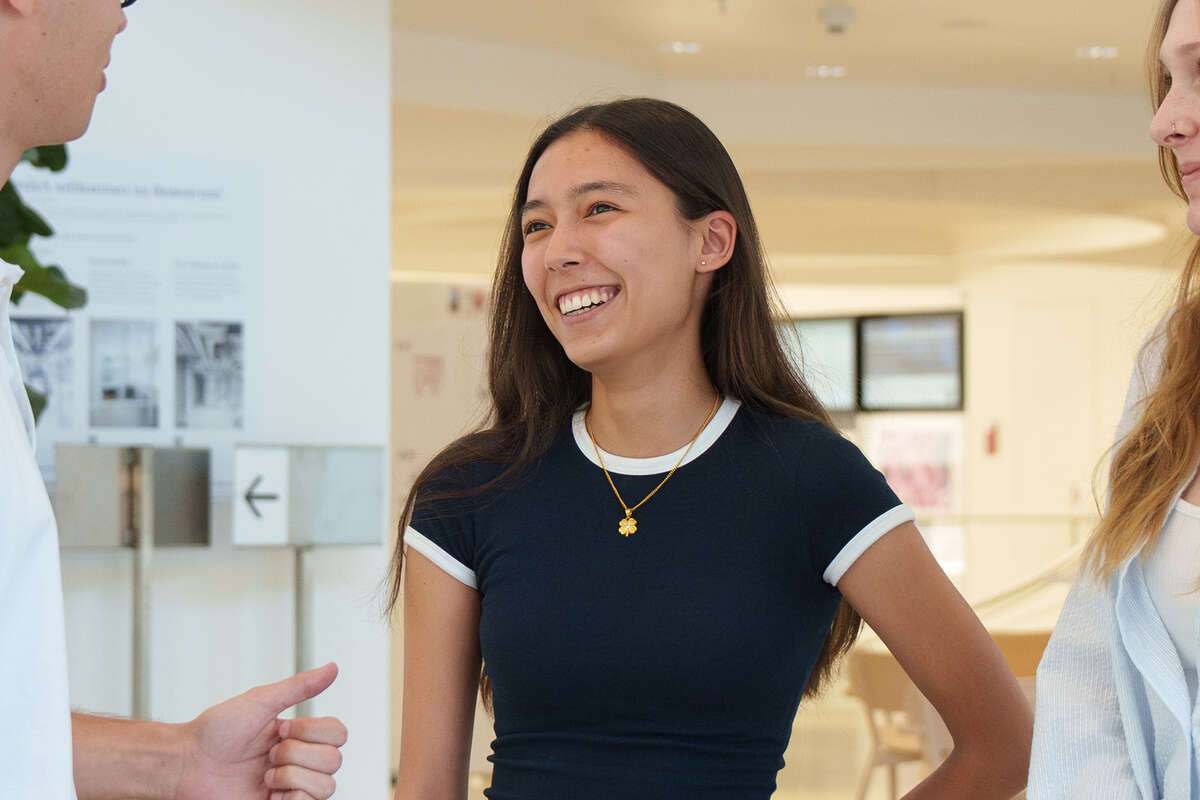Testimonial Lia Biscafé-Park
Université Paris Saclay, ENS Paris-Saclay & Institut Polytechnique de Paris, Research Group Everton Agnes

Where are you from and what do you study?
I am a student from France, studying a joint degree between Université Paris-Saclay, ENS Paris-Saclay, Institut Polytechnique de Paris, and HEC. It can be translated as: “Interdisciplinary Graduate Program in Data Science, Society, and Health.” To put it simply, the majority of the courses are in mathematics and computer science, but we also have classes in biology, economics, data ethics, and many more.
Why did you apply for the Research Summer Program?
As I was still unsure whether to pursue a research career, I applied to the Research Summer Program to gain my first experience in research and see what the world of academia is really like. During this summer, I discovered the daily life of researchers: how they work together, the topics they work on, and how they come up with ideas. Now I have a clear understanding of what research is, and this experience has confirmed my career choice.
What are you working on?
To model the activity of neurons, there are two main approaches: rate-based models, which focus on the average frequency of spikes, and biophysical models, which take into account individual spikes. The aim of my project is to find a mapping between these two models, so that we can perform with spiking networks the kinds of analyses we usually do with rate-based models.
How or why did you choose your specific research group?
Since biology is not my main field of study, my main criterion was to find a research group where I could apply my knowledge in mathematics and computer science. I was not very interested in doing experiments in a lab with bacteria or worms—I was much more attracted to the theoretical side of biology. I remember reading the description of the research group “Theoretical and Computational Neuroscience” and being especially drawn to the sentence: “Computers, as well as pen and paper, are the tools that, through mathematical analysis and simulations, will allow us to unveil how the brain processes information.” I wanted to see how biology could be studied with pen and paper!
What new things have you learned in the Research Summer Program?
I have learned so many things during the Research Summer Program! Most importantly, I had the chance to work in a wonderful team where I learned how to organize my work to achieve a research goal. I was also very happy to see mathematics applied to biology and real-world problems, rather than just being used to solve exercises in math classes.
Would you recommend the Research Summer Program to others, and if yes, why?
I would definitely recommend the Research Summer Program, 100%! The people are really nice, and you get to meet other interns from all over the world who share your interests. The supervisors are also very kind. The program is well organized, with regular events that allow you to socialize and explore Basel, which is an amazing city. Finally, this internship is not only a first step into research but also into the professional world, and I truly believe you can only benefit from it.


